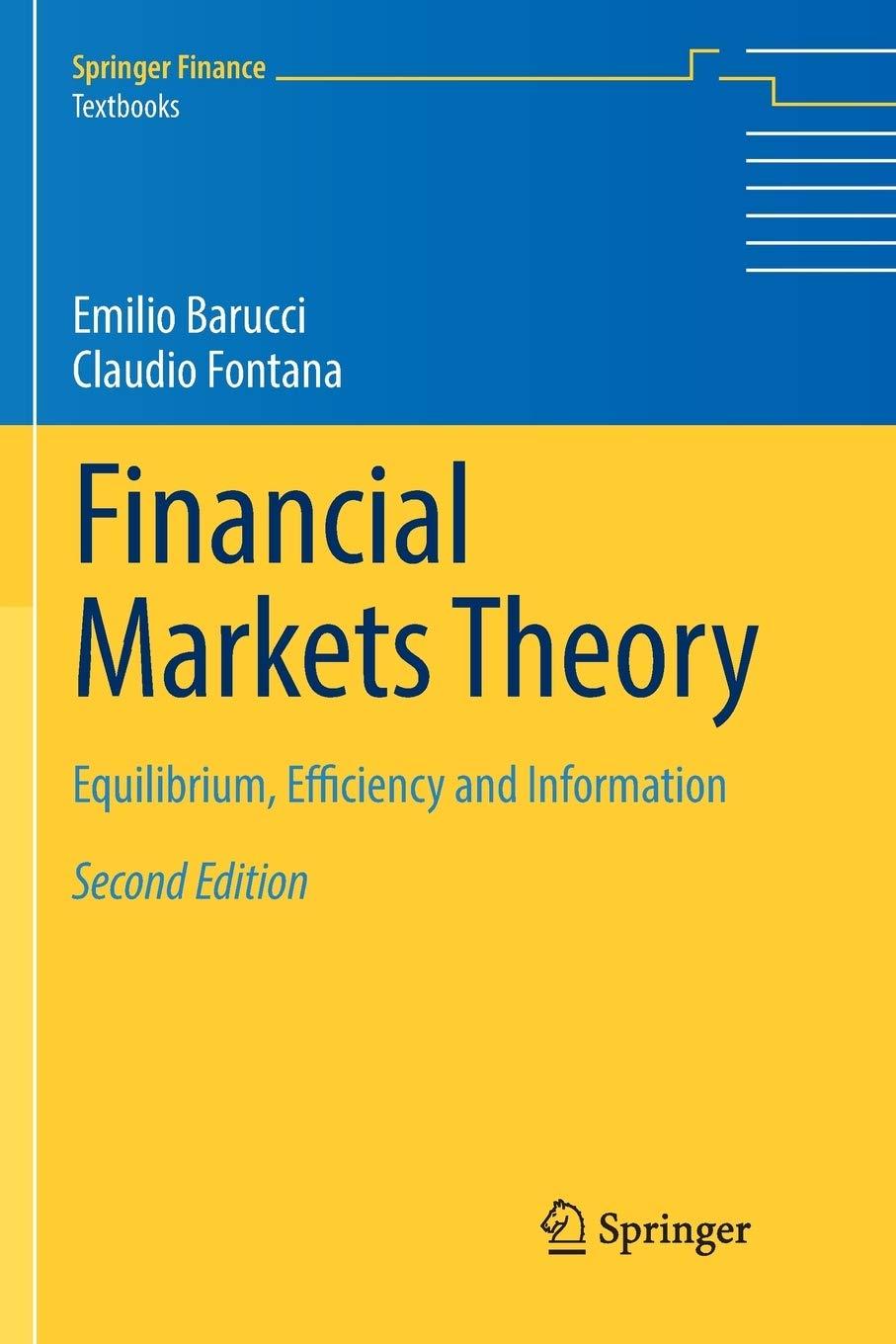Let (c=left(c_{1}, ldots, c_{S} ight) in mathbb{R}^{S}) represent a random payoff and suppose that there exists a
Question:
Let \(c=\left(c_{1}, \ldots, c_{S}\right) \in \mathbb{R}^{S}\) represent a random payoff and suppose that there exists a portfolio \(z^{c} \in \mathbb{R}^{N}\) such that \(D z^{c}=c\). Suppose that it is possible to trade the payoff \(c\) for a price \(p_{N+1} eq p^{\top} z^{c}\). Show that there exists an arbitrage opportunity in the extended market represented by
\[p^{\prime}=\left(\begin{array}{c}p_{1} \\\vdots \\p_{N} \\p_{N+1}\end{array}\right) \quad D^{\prime}=\left[\begin{array}{cccc}d_{11} & \ldots & d_{1 N} & c_{1} \\\vdots & \ddots & \vdots & \vdots \\d_{S 1} & \ldots & d_{S N} & c_{S}\end{array}\right] .\]
Fantastic news! We've Found the answer you've been seeking!
Step by Step Answer:
Related Book For 

Financial Markets Theory Equilibrium Efficiency And Information
ISBN: 9781447174042
2nd Edition
Authors: Emilio Barucci, Claudio Fontana
Question Posted:





